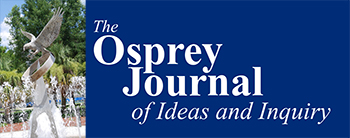
All Volumes (2001-2008)
Volume
Volume I, 2001
Faculty Sponsor
Dr. Christopher Leone
Document Type
Article
Publication Date
2001
Abstract
It was hypothesized that males will rate female-targeted jokes as more humorous than male-targeted jokes. Similarly, females will rate male-targeted jokes as more humorous than female-targeted jokes. It is also predicted that males with favorable attitudes toward women, as measured by the Attitudes Toward Women Scale, will rate female-targeted jokes as less humorous than males with unfavorable attitudes toward women. Females with favorable attitudes toward women are predicted to rate female-targeted jokes as less humorous than females with unfavorable attitudes toward women. Males with favorable attitudes toward public policies aimed at reducing inequalities between the sexes, as measured by the Neosexism Scale, are predicted to rate female-targeted jokes as less humorous than males with less favorable attitudes toward those public policies. Likewise, females with favorable attitudes toward public policies aimed at reducing inequalities between the sexes are predicted to rate female-targeted jokes as less humorous than females with less favorable attitudes toward those public policies. Additionally, males with egalitarian sex-role attitudes, as measured by the Sex-Role Egalitarianism Scale, are predicted to rate both male and female-targeted humor as more humorous than males with either traditional or nontraditional sex-role attitudes. Finally, females with egalitarian sex-role attitudes are predicted to rate both male and female-targeted humor as more humorous than females with either traditional or nontraditional sex-role attitudes.
Suggested Citation
Curry, Danielle, "The Effects of Sex of Subject and Sex of Target on the Perceived Humor of Male and Female-Targeted Jokes" (2001). All Volumes (2001-2008). 133.
https://digitalcommons.unf.edu/ojii_volumes/133
